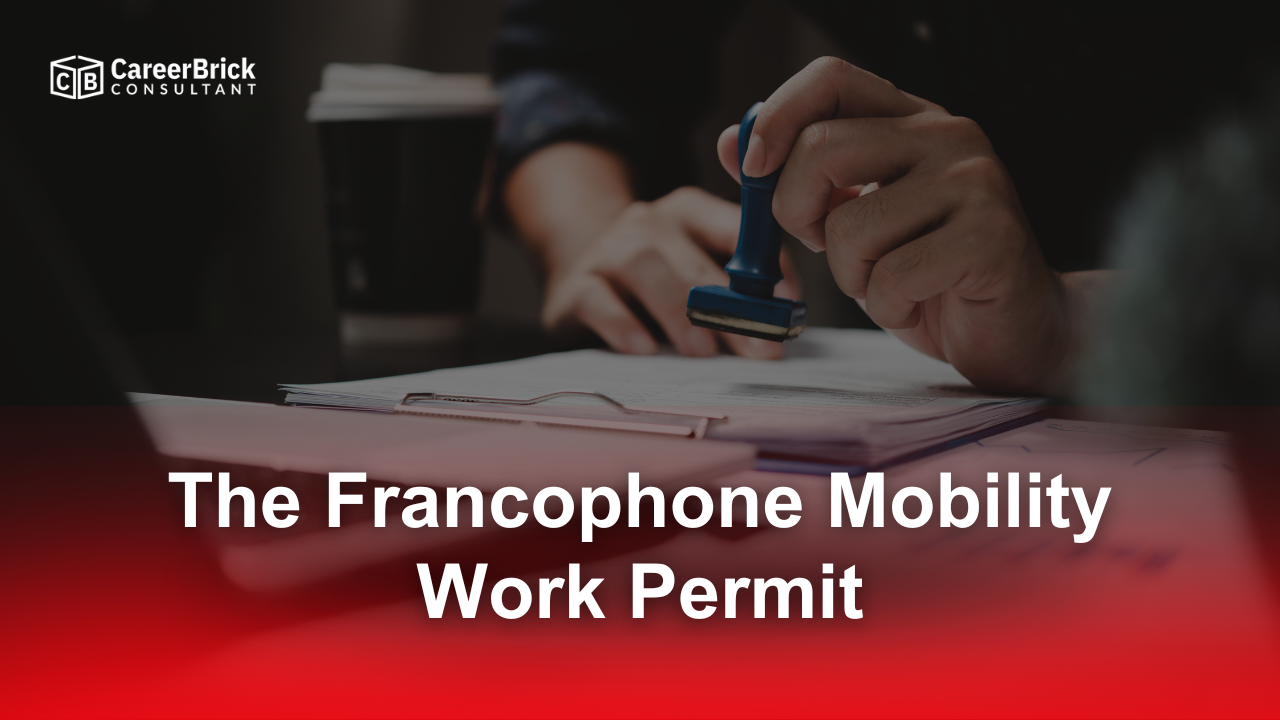The Francophone Mobility Work Permit allows individuals with conversational French skills and a job offer from a Canadian employer (outside Quebec) to work in Canada.
Canada recognizes both French and English as official languages. However, there is a growing shortage of French-speaking professionals in provinces outside Quebec. To address this gap, the Canadian government has introduced initiatives to encourage the immigration of Francophone workers.
Launched in 2016, the Francophone Mobility Work Permit aims to support this need.
The current eligibility criteria, valid until June 2025, include:
- A job offer from a Canadian employer at any skill level.
- Moderate proficiency in French (B1 level or CLB 5 in speaking and listening). Reading and writing scores are not required.
- Language proficiency must be demonstrated through TCF or TEF tests unless the individual has completed high school, college, or an educational program in French, in which case testing is not required.
Benefits of the Francophone Mobility Program
For Employers:
- No Labour Market Impact Assessment (LMIA) required.
- The job offer does not need to specify French language requirements.
- Employer-specific work permit.
- Work permit validity matches the job offer duration and is renewable.
For Candidates:
- Open work permit available for spouses and common-law partners (for employment exceeding six months).
- Dependent children can study in Canada (primary and secondary levels).
- Access to government-funded settlement services in French.
- A valuable pathway toward permanent residency.
Eligibility Criteria
To qualify, you must:
- Meet the general requirements for a work permit.
- Reside and work in one of the nine Canadian provinces or three territories outside Quebec.
- Demonstrate intermediate proficiency in spoken and written French, equivalent to NCLC level 5 or higher.
- Have a valid job offer in any Training, Education, Experience, and Responsibilities (TEER) category of the National Occupational Classification (NOC) system, except for primary agriculture occupations under TEER 4 and 5.
Francophone Mobility Process
1. Verify Job Offer Eligibility
Before proceeding, ensure that the job offer aligns with the Francophone Mobility Program requirements. The position must be located outside Quebec and fall under an eligible TEER category of the National Occupational Classification (NOC) system. Additionally, the candidate must meet the required French language proficiency level to qualify for the program.
2. Establish an Employment Agreement
Once eligibility is confirmed, the employer and the candidate must sign a formal employment contract. This contract should clearly define job responsibilities, salary, working conditions, and the duration of employment. A well-structured agreement ensures transparency and compliance with Canadian labor regulations.
3. Submit an Online Application
The employer must submit the job offer through the Government of Canada’s Employer Portal. This step includes paying the necessary compliance fees and providing details about the position and the candidate. Once the application is approved, the candidate can proceed with their work permit application, bringing them one step closer to working in Canada.
Conclusion
The Francophone Mobility Work Permit serves as a valuable pathway for French-speaking professionals seeking employment opportunities in Canada while helping employers address labor shortages outside Quebec. With simplified requirements, including exemption from the Labour Market Impact Assessment (LMIA) and opportunities for spouses and dependents, the program makes it easier for Francophones to integrate into Canadian society.
By facilitating the immigration of French-speaking workers, Canada not only strengthens its bilingual workforce but also promotes cultural diversity and economic growth. For eligible candidates, this initiative provides a unique opportunity to build a successful career and establish a long-term future in Canada, with a clear route toward permanent residency.







